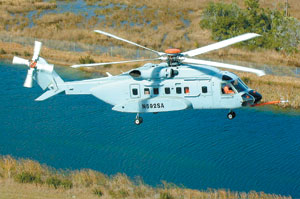Current geopolitics shape drilling environment
Dec. 2001 Vol. 222 No. 12 Feature Article WORLD OIL SPECIAL REPORT Current geopolitics shape drilling environment Paul L. Kelly, Senior Vice President, Rowan
WORLD OIL SPECIAL REPORTCurrent geopolitics shape drilling environmentPaul L. Kelly, Senior Vice President, Rowan Companies, Inc., Houston
The resulting weaker gas prices were the principal driving force that caused a slowdown in drilling, both onshore and offshore. Jackup rig utilization dropped to 65% in October from over 90% early in the year. As we look ahead to next year, conflicting forces are evident. For example, while the U.S. manufacturing sector is experiencing its worst recession in decades, electricity consumption across the nation set record highs in first-half 2001. Forecasts indicate that in the 12 months ending April 2002, 15 rigs will have migrated out of the Gulf of Mexico to other regions. Whether this trend continues in 2002 depends on whether oil company operators take a more cautious approach to budget expenditures in the current global environment.
One thing is certain – current drilling rates for oil and gas are too low to offset depletion, and the irrepressible growth in energy demand continues in the global economy. While in the short term we may see prices periodically pulled down by weather forecasts and world political events, these tend to mask a multi-year period of energy infrastructure investment, profitable gas prices and stable oil prices that underlie all the temporal events. This should become clearer, once we come out of the current trough later in 2002. Rowan is trying to steer a steady course that looks beyond this trough. We continue on with our rig construction program – the heavy-duty HPHT jackup, Rowan Gorilla VII, will move to the North Sea upon its completion at year-end, while Rowan Gorilla VIII continues on its construction schedule, with delivery planned in 2003. Recently, the company announced it would build the first of a new "Tarzan" class of jack-up rigs, the Scooter Yeargain, aimed at the market for deep gas drilling on the Gulf of Mexico OCS. Both Gorilla VIII and Scooter Yeargain will be equipped with first-in-the-world, 3,000-hp pumps manufactured by our LeTourneau Ellis Williams division.
Likewise, Rowan’s Era Aviation division is planning for the future with leading-edge technology in flight operations. Era is investing in three Sikorsky S-92 helicopters for its aviation services in the Gulf of Mexico, to be delivered in 2003 and 2004. These are civilian versions of the Black Hawk and U.S. Navy Seahawk helicopters that have more than 5 million flying hours in military service. They will be particularly well suited for GOM deepwater range requirements and production operations. The S-92 will carry 19 passengers and have a 6-ft-plus cabin in which passengers can stand comfortably when appropriate. It will have a maximum cruising speed in excess of 150 kt and a range of over 400 nautical miles. Next year will mark the launch of the Department of the Interior’s Five-Year Offshore Leasing Plan, covering the years 2002 – 2007. The first sale in the new program will be the Western Gulf of Mexico sale, to be held in August. For the next five years, politics will limit the Minerals Management Service to leasing only tracts in the Central and Western GOM, tracts covering only 3% of the Eastern Gulf, and selected areas offshore Alaska that so far have been geologically disappointing. It certainly is not wise or farsighted for our policymakers to limit offshore exploration for such a long period of time, considering the risks facing the nation at this moment. The coming year will be important to the petroleum industry, if President Bush can be successful with those parts of his national energy strategy that require implementation by Congress, such as opening ANWR for development. Much can be done to help increase U.S. energy production by presidential executive order and by administrative actions in the various federal agencies. However, considering the potentially explosive situation in the Middle East, it is difficult to understand why Congress does not attach more urgency to U.S. energy security, or what we might call "energy insurance," and take action immediately. Again, in the context of current world events, the coming year will see the petroleum industry giving high-priority consideration to the security of our assets that definitely meet the criteria of "critical infrastructure to the nation." This will be done with cooperation among industry sectors and companies themselves, as well as in cooperation with U.S. government homeland defense agencies.
|
||||||||||||||||||||||||||||
- Prices and governmental policies combine to stymie Canadian upstream growth (February 2024)
- U.S. producing gas wells increase despite low prices (February 2024)
- U.S. drilling: More of the same expected (February 2024)
- U.S. oil and natural gas production hits record highs (February 2024)
- U.S. upstream muddles along, with an eye toward 2024 (September 2023)
- Canada's upstream soldiers on despite governmental interference (September 2023)

 The year 2001 closes with much uncertainty for the contract drilling industry. An economic hard landing, exacerbated by the events of September 11, caused natural gas demand to slide in the second half of the year, and gas in storage climbed unexpectedly.
The year 2001 closes with much uncertainty for the contract drilling industry. An economic hard landing, exacerbated by the events of September 11, caused natural gas demand to slide in the second half of the year, and gas in storage climbed unexpectedly.


